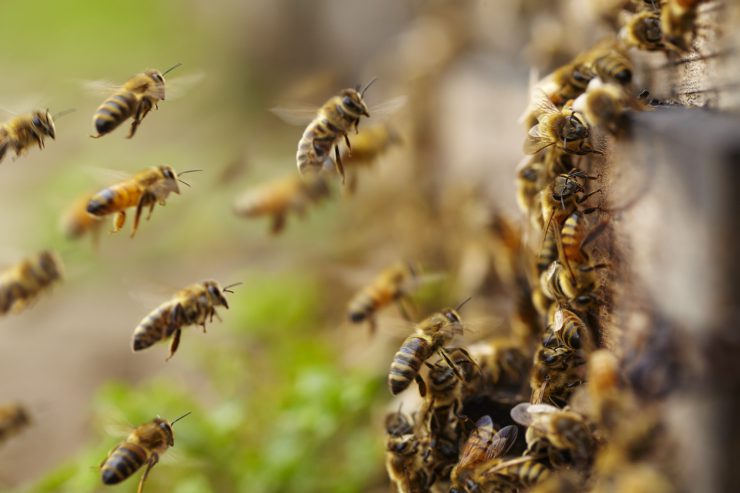Consider this: According to the Food and Agriculture Organization (FAO) of the United Nations, 75 percent of the world’s food crops — from almonds to cherries and apples to broccoli — depend at least partly on pollinators like bees. Chances are that you have bees to thank for your favorite snack.
Bees also enable our modern way of life. In fact, it’s impossible to overstate the importance of bees: we rely on their contributions for more than you may realize.
Why Are Bees Important to Your Health?
Bees don’t just make honey, an incredible substance in itself. They also pollinate hundreds of fruit and vegetable plants, including those that produce cranberries, melons, broccoli, blueberries, and almonds, according to the American Beekeeping Federation.
Eating a diet rich in produce in various colors provides nutrients that allow your body to absorb and make use of vitamins and minerals. Getting a range of vitamins and minerals is necessary for cell function and helps protect against heart disease, high blood pressure, type 2 diabetes, and some cancers.
Never Miss a Beat!
Subscribe to Our HealthBeat Newsletter!
Thank you for subscribing!
You can now select the specific newsletters you'd like to receive.
You are already subscribed.
Subscribe to more newsletters in our email preference center.
Sorry, an error occurred. Please try again later.
Get Healthy Tips Sent to Your Phone!
The Importance of Bees to Modern Life
Believe it or not, pollinators like bees do more than provide plenty of variety in your diet. They also facilitate the production of:
- Biofuels, like canola and palm oil
- Textiles, like cotton
- Plant-based medicines
- Construction materials
- Feed for both livestock and wild animals
Without bees, life as we know it wouldn’t exist.
Declining Bee Populations
The decline in bee populations has been making headlines. Factors such as global warming, intensive agriculture, pesticides, and pollution threaten their very survival. According to FAO, pollinators are declining worldwide. If bee populations continue to plummet at current rates, experts warn of rising grocery costs and potential food shortages.
Food scarcity may sound dramatic. It can be argued that humans could make do with foods that don’t rely on pollinators — like rice and wheat — for many years before reaching a global hunger reaches a crisis stage. But human health would suffer if we were to lose the variety of crops bees allow us to eat.
How You Can Help
You can make an impact simply by planting and nurturing a pollinator-friendly garden in your own backyard.
To take it a step further, support local beekeepers and sustainable agriculture in your community. A team from UPMC Magee-Womens Hospital is doing just that in Pittsburgh’s Oakland neighborhood, investing in the environment and the health of their region by cultivating beehives. With the help of local beekeepers, the colonies have produced more than just honey; they’re generating positive buzz among local residents and the health care community.
Sources
About UPMC Magee-Womens
Built upon our flagship, UPMC Magee-Womens Hospital in Pittsburgh, and its century-plus history of providing high-quality medical care for people at all stages of life, UPMC Magee-Womens is nationally renowned for its outstanding care for women and their families.
Our Magee-Womens network – from women’s imaging centers and specialty care to outpatient and hospital-based services – provides care throughout Pennsylvania, so the help you need is always close to home. More than 25,000 babies are born at our network hospitals each year, with 10,000 of those babies born at UPMC Magee in Pittsburgh, home to one of the largest NICUs in the country. The Department of Health and Human Services recognizes Magee in Pittsburgh as a National Center of Excellence in Women’s Health; U.S. News & World Report ranks Magee nationally in gynecology. The Magee-Womens Research Institute was the first and is the largest research institute in the U.S. devoted exclusively to women’s health and reproductive biology, with locations in Pittsburgh and Erie.
